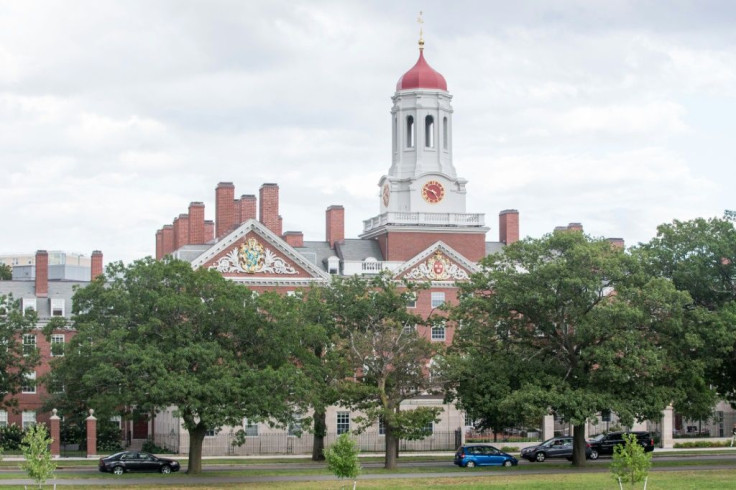College Admissions Scandal: Ex-Harvard Coach, Parent Arrested In $1.5 Million Bribery Case
KEY POINTS
- Former Harvard fencing coach Peter Brand was arrested for accepting $1.5 million in bribes from Jie Zhao to get his two sons into Harvard
- Zhao donated money indirectly to Brand's charity, paid of Brand's loans, Bought Brand's house for above market rate, and renovated the more expensive house Brand bought with the money
- Zhao's lawyer denies the accusations, saying the boys got in on their own merit. The court documents say Zhao's sons were unaware of the payments
Former Harvard fencing coach Peter Brand and Maryland businessman Jie "Jack" Zhao were arrested Monday on federal program bribery charges. Prosecutors allege Brand accepted bribes from Zhao in exchange for getting Zhao’s two sons into Harvard University as fencing recruits.
The scandal came to light in April 2019 after the Boston Globe reported that Brand sold his Needham, Massachusetts, home to Zhao for nearly $1 million, which was almost double its value. Brand was fired by Harvard in July 2019 after an internal investigation.
The total bribes from Zhao totaled more than $1.5 million.
"Jack doesn't need to take me anywhere and his boys don't have to be great fencers,” Brand allegedly told his co-conspirator. “All I need is a good incentive to recruit them[.] You can tell him that[.]"

The donations began in 2013 when Zhao gave $1 million to a charity run by an unnamed co-conspirator. Zhao’s eldest son got into Harvard later that year and matriculated less than a year after. The co-conspirator's charity then donated $100,000 to Brand’s personal charity.
The funding continued as Zhao paid off Brand’s car, mortgage, and the tuition of Brand’s son. He bought Brand’s house for above market value and paid for renovations on the more expensive house Brand bought with the money.
Zhao’s younger son graduated from Harvard in 2017. The court documents say Zhao’s sons were not aware of the payment.
The arrests are separate from the “Varsity Blues” investigation that used similar bribery tactics.
Bribery involving federal programs can carry a sentence of up to five years. In a statement to the New York Times, Zhao’s lawyer vigorously denied the allegations.
“Jack Zhao’s children were academic stars in high school and internationally competitive fencers who obtained admission to Harvard on their own merit,” the statement read. “Both of them fenced for Harvard at the Division One level throughout their college careers. Mr. Zhao adamantly denies these charges and will vigorously contest them in court.”
U.S. Attorney Andrew Lelling said prosecutors would continue to investigate illegitimate admissions.
"Millions of teenagers strive for college admission every year. We will do our part to make that playing field as level as we possibly can," said Lelling.
© Copyright IBTimes 2024. All rights reserved.





















